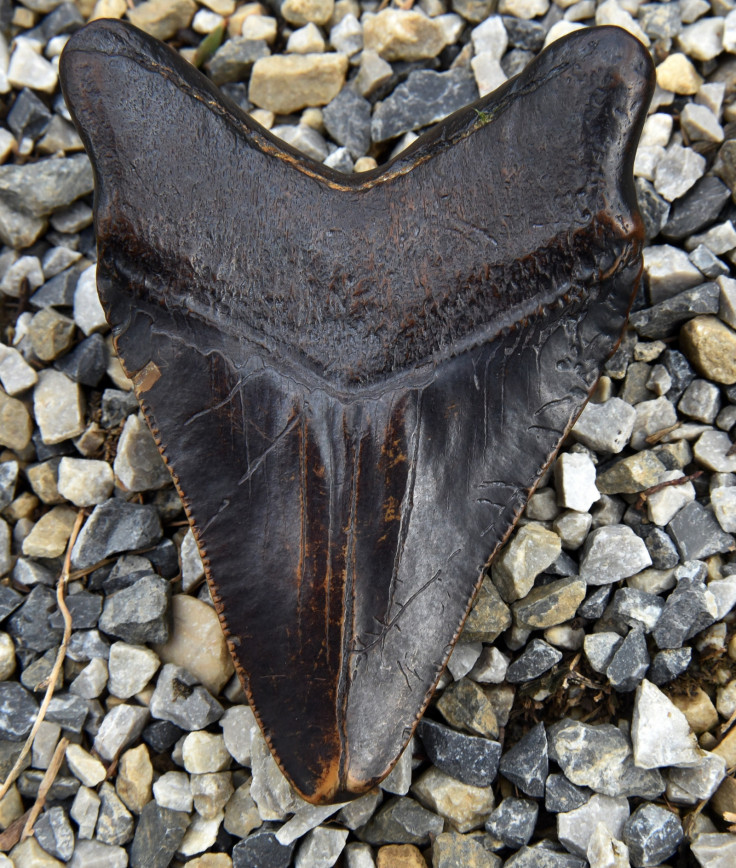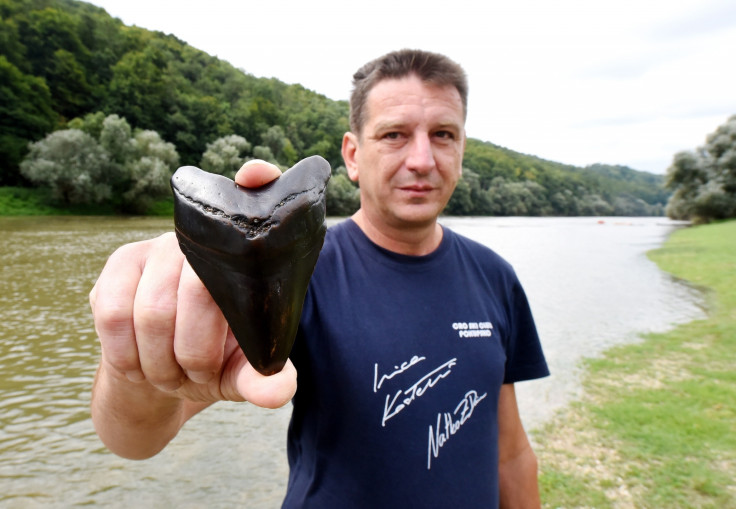Megalodon shark tooth discovered in Croatia [Photos]
A megalodon shark tooth has been discovered in Croatia along the banks of the Kupa river. Pictures of the prehistoric monster shark's tooth show it is about the size of a man's palm. Stjepan Sucec had been searching for shells when he came across the tooth near about 60 km from the capital Zagreb. Geologist Drazen Japundzic from the Natural History Museum in Zagreb later confirmed it is probably a tooth of a megalodon shark – or Carcharodon megalodon. The tooth is currently being held at the museum and will probably become part of a future exhibition.
Sharks are cartilaginous fish, meaning they lack a bony skeleton. This means their teeth and just a few vertebrae normally fossilize. Megalodons lived between 16 and 2.6 million years ago during the Cenozoic Era and are considered to be the largest and most powerful predators in vertebrate history.

They could grow up to 60ft in length, with juveniles born at around the same size as today's great white sharks. They likely feasted on cetaceans and large whales. Fossilised remains have been found across the world, with specimens excavated from many parts of Europe, Africa, north and South America and Asia. There are several theories as to why megalodons went extinct. Ocean cooling may have affected the species, which preferred to live in warmer waters. A declining food supply is also suggested to be a main culprit in their demise.

Researchers from the University of Florida and the University of Zurich published a study into their extinction in PLOS One last year, debunking the idea that they could still exist today. "I was drawn to the study of carcharocles megalodon's extinction because it is fundamental to know when species became extinct to then begin to understand the causes and consequences of such an event," said lead author Catalina Pimiento. "I also think people who are interested in this animal deserve to know what the scientific evidence shows, especially following Discovery Channel specials that implied megalodon may still be alive."
© Copyright IBTimes 2025. All rights reserved.






















